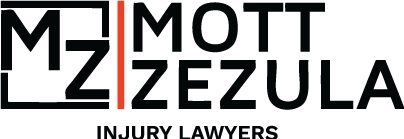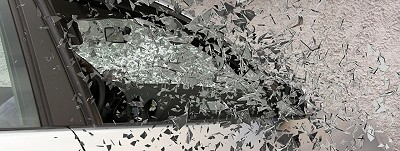With the increasing number of drivers on the road and the amount of traffic we encounter on a daily basis, unfortunately there is a good chance you will be involved in a car accident at some point in your life. Whether you were rear ended, cut off, side-swiped, or involved in a head to head collision, the injuries could be severe and long-lasting. The aftermath of a car accident can leave you with a lot of physical issues and mental instability. Here are several suggestions to try to keep in mind following a car accident that was not your fault.
1. Assess Yourself
The first thing you should do after a car accident is assess yourself. Ask yourself the following questions: How am I feeling? Am I in pain? Where does it hurt? Does it hurt anywhere else? How severe is the pain? Am I thinking clearly? Do I need immediate medical attention? What do I need?
The answers to those questions will give you a good idea as to what your next steps should be. If you feel you need medical attention, don’t feel afraid or embarrassed to ask for help.
2. Call for Help
Once you assess the situation you are in, call for help or ensure someone else has called for help. If you or someone else is injured, ask for an ambulance. Tell the operator about the injuries you are experiencing or witnessing. This will give the operator an idea of the extent of the injuries and how much help is required.
3. Offer/Receive Assistance
To the extent you are able, offer assistance to others who are injured. You do not have to wait for the police or an ambulance to arrive to offer assistance.
If you are unable to provide assistance due to your own injuries or difficulties, allow others to assist you if possible. Tell whoever is assisting what injuries you have and what you need - and be thorough and specific.
4. Assess What Happened
Determine what caused the accident and how it happened. Try to recall what happened immediately before the accident and what happened immediately after the accident. Make a mental note of different factors that may have contributed to the accident such as speed, inattentiveness, cell phone use, traffic patterns, weather conditions, following too closely, aggressive driving, etc. Try to recall what happened to your body inside the car after the collision - did your head hit the steering wheel, did the airbag deploy, did your head snap back, did your knees hit the dashboard, did your seatbelt hurt your chest, etc. Details you remember now can add significant value to your claim down the road.
5. Take Photos
Almost everybody carries a cell phone with them these days. Use your cell phone (or someone else’s cell phone) to take numerous pictures of the scene, the vehicles, the people, the roadway, etc. from different angles and vantage points. You’ll want close up pictures, pictures from far away, and pictures from average distance. You should also take pictures of your physical injuries if possible.
6. Obtain Witness Information
Although the police report may contain the names and contact information for witnesses of the accident, it’s a good idea to independently gather witness information as well. You’ll want their name, address, phone number, information on what they saw and information on where they were going when they witnessed the accident.
7. Obtain Insurance Information
The police report should also contain insurance information for the at-fault driver, but it doesn’t hurt to gather this information yourself. You’ll want the driver’s full name, address, and phone number; the vehicle owner’s name, address, and phone number; and the insurance company name, address, phone number, and policy number. You should also obtain the year, make and model of the vehicle, as well as the license plate number.
8. Get Treatment
Often times after an accident injury symptoms will not manifest themselves for several days, but that doesn’t mean you’re not injured. If you sustain an injury, no matter how small it may seem, always consult a doctor. If you’re not certain about what kind of doctor to consult, start with your primary care doctor. Your primary care doctor will examine you and refer you to other specialists for your injuries. Follow through with your referrals and stick to your treatment schedule. The better you adhere to your treatment plan, the better your chances for a complete recovery. Consistent treatment also adds credibility and believability to your injury claim.
9. Keep a Daily Diary or Journal
After an auto accident, it is imperative to write down all the details of the accident that you can remember. You should do so in a diary or journal and in narrative format. Be specific and write down as many details as possible.
You should also keep daily notes on how you are feeling physically, how you are feeling emotionally and mentally, what hurts, what complications you are experiencing, and what treatment you are receiving. Keeping an accurate and up-to-date daily journal or diary can help you recall details later on down the road. Plus, if your case proceeds to trial the journal or diary can be used to refresh your recollection of what has transpired.
10. Consult an Injury Lawyer as Soon as Possible
If you are injured in an auto accident, you should seek advice from an experienced injury lawyer as soon as possible. They will evaluate your case, determine any evidence or investigation that is needed, advise you on what to do and not to do, inform you of the process, and help to coordinate your treatment. You should most likely never provide a recorded statement to an insurance company without speaking with an attorney first. Also, you should not settle your case with the insurance company without speaking to an attorney first.
Mott Zezula LLC. Exceptional Injury Lawyers. (203) 408-6500.


